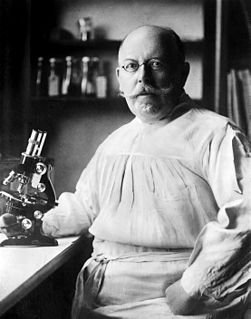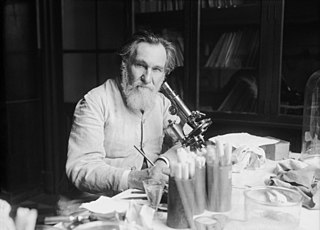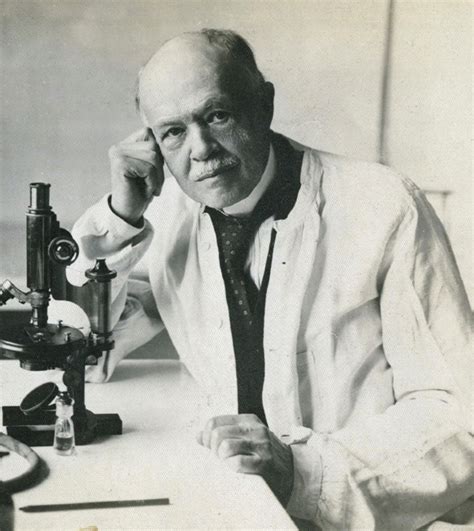A Quote by Robert Koch
To prove that tuberculosis is caused by the invasion of bacilli, and that it is a parasitic disease primarily caused by the growth and multiplication of bacilli, it is necessary to isolate the bacilli from the body, to grow them in pure culture until they are freed from every disease product of the animal organism, and, by introducing isolated bacilli into animals, to reproduce the same morbid condition that is known to follow from inoculation with spontaneously developed tuberculous material.
Related Quotes
If diphtheria is a disease caused by a microorganism, it is essential that three postulates be fulfilled. The fulfilment of these postulates is necessary in order to demonstrate strictly the parasitic nature of a disease:
1) The organism must be shown to be constantly present in characteristic form and arrangement in the diseased tissue.
2) The organism which, from its behaviour appears to be responsible for the disease, must be isolated and grown in pure culture.
3) The pure culture must be shown to induce the disease experimentally.
An early statement of Koch's postulates.
It has been demonstrated that a species of penicillium produces in culture a very powerful antibacterial substance which affects different bacteria in different degrees. Generally speaking it may be said that the least sensitive bacteria are the Gram-negative bacilli, and the most susceptible are the pyogenic cocci ... In addition to its possible use in the treatment of bacterial infections penicillin is certainly useful... for its power of inhibiting unwanted microbes in bacterial cultures so that penicillin insensitive bacteria can readily be isolated.
... After it has been determined that the pathogenic organism is present in the animal body, and after it has been shown that the organism can reproduce in the body and be transmitted from one individual to another, the most important experiment remains to be done....to determine the conditions necessary for growth and reproduction of the microorganism.
We say that one gets cancer, or a cold, or kidney disease. One would
never think to say that one is cancer. But we say that one is depressed,
or bipolar, or schizophrenic. A disease of the body is a condition. But
a disease of the mind, we think, is a state of being. We no longer
believe, as we did 250 years ago, that the mentally ill are animals,
but we are not yet ready to grant that they are fully human either.
Calcification is the hardening of body tissues by calcium salts or deposits. Although calcification itself is not considered a disease, it has been shown to be a significant contributing factor in nearly every known illness and aging condition, including heart disease, kidney stones, gallstones, chronic inflammation, arthritis, cancers, cataracts, eczema, psoriasis, and even wrinkles.
When a human body is out of balance we call that disease, which indicates dis-ease of the body. Likewise, when the body of Christ becomes unbalanced, disease occurs... Health will occur only when everything is brought back into balance. The task of church leadership is to discover and remove growth-restricting diseases and barriers so that natural, normal growth can occur.





































